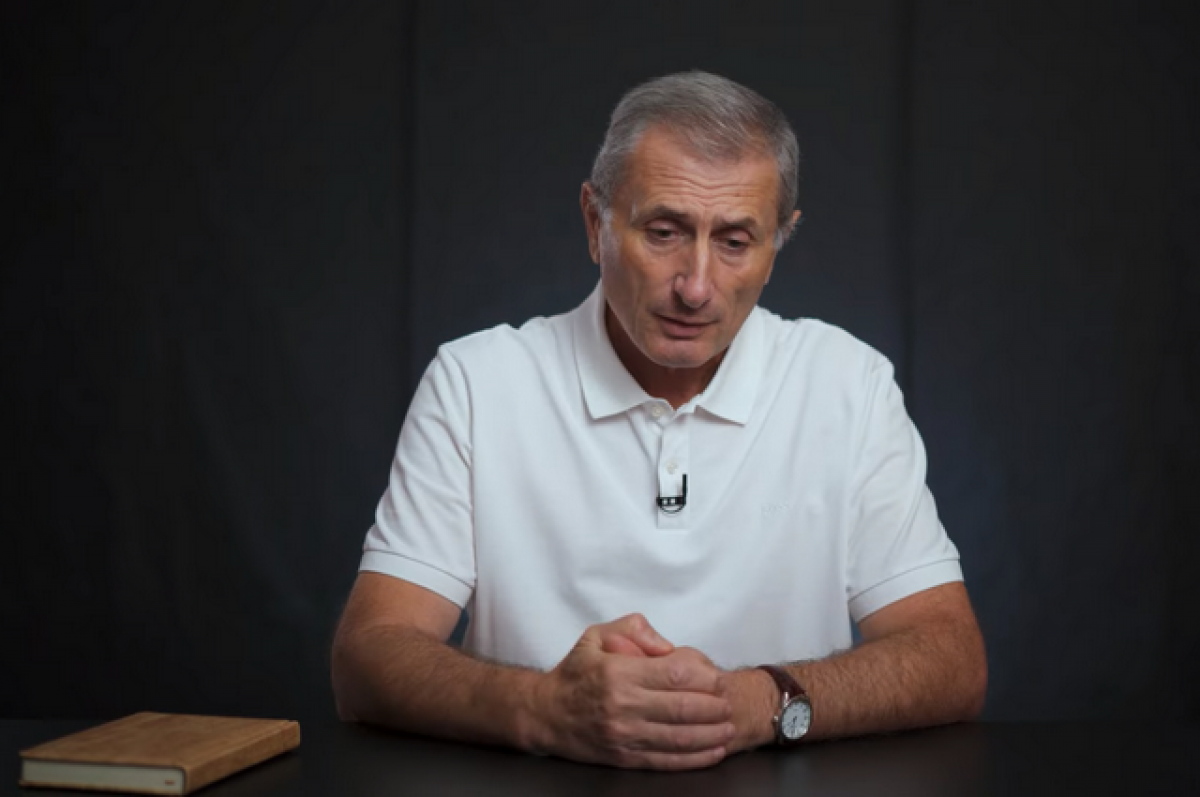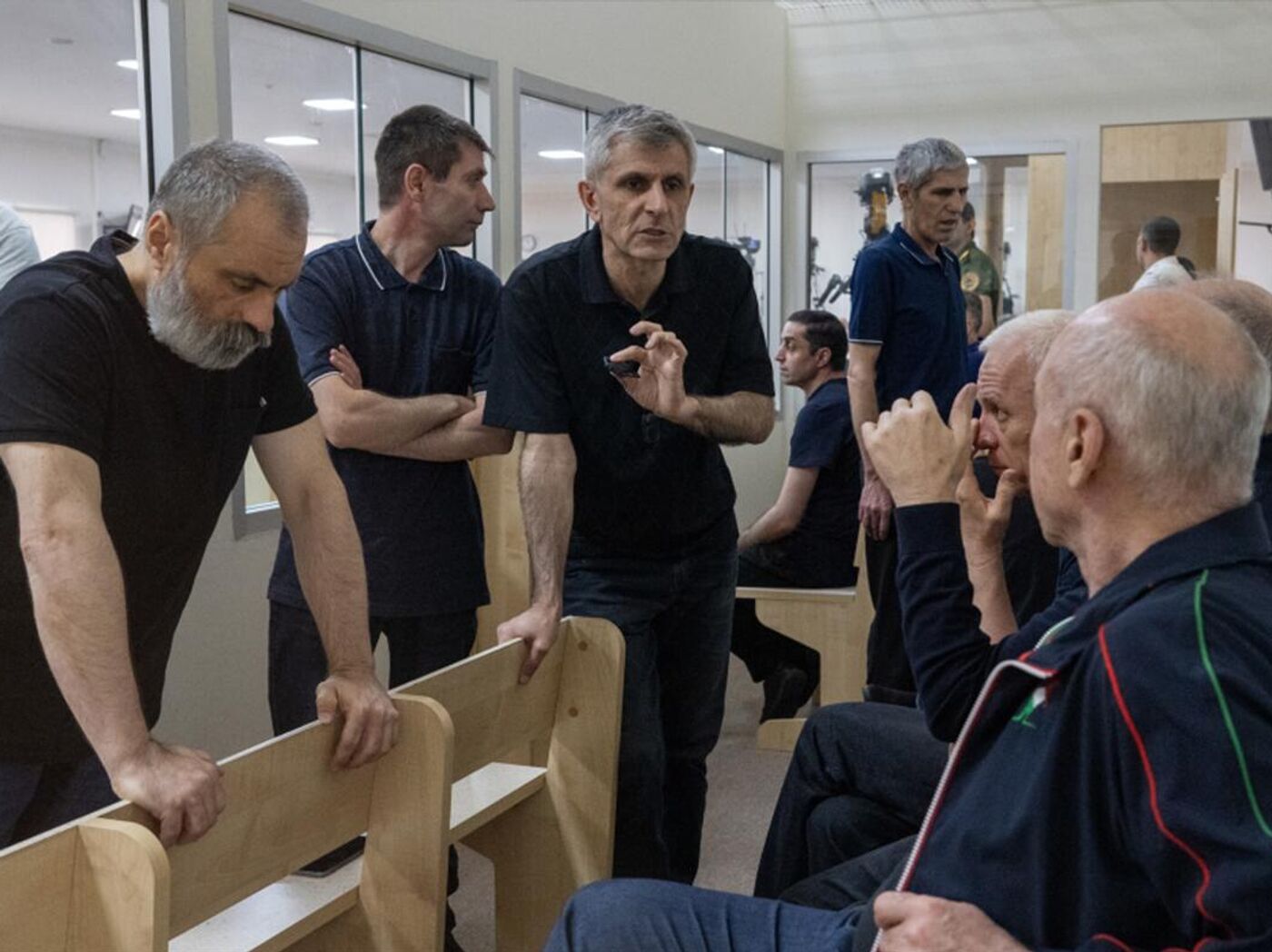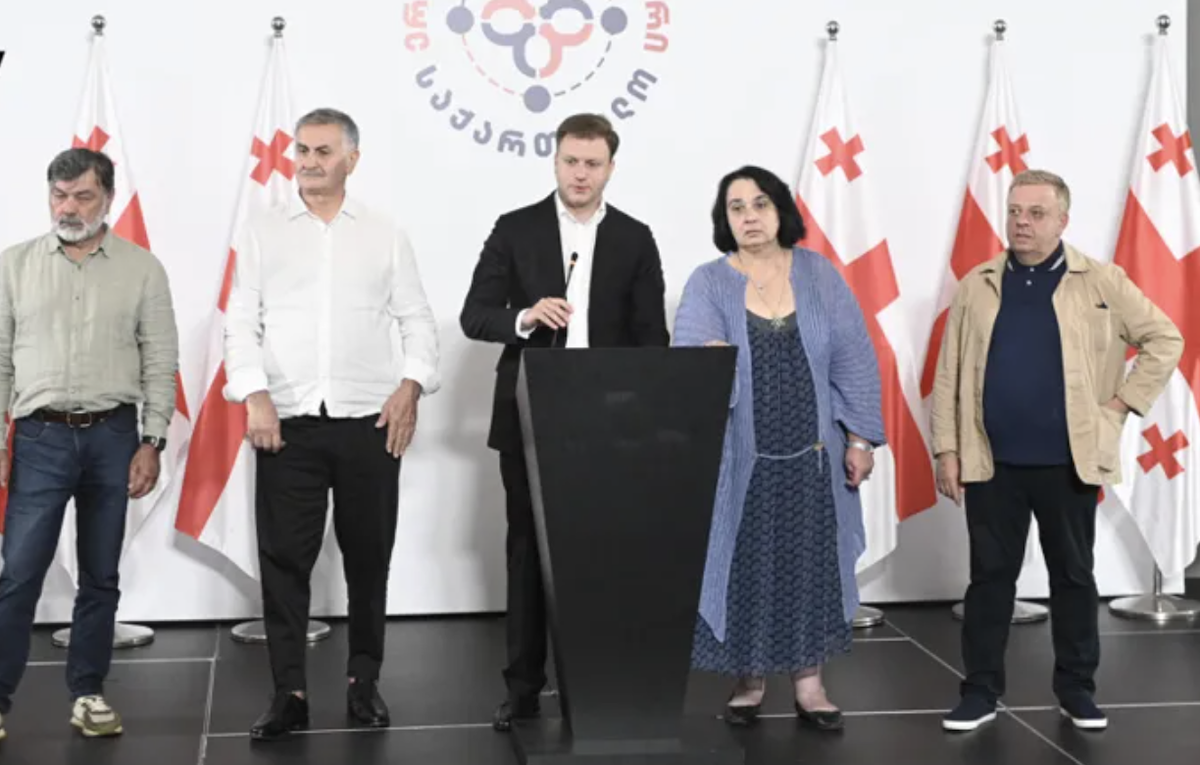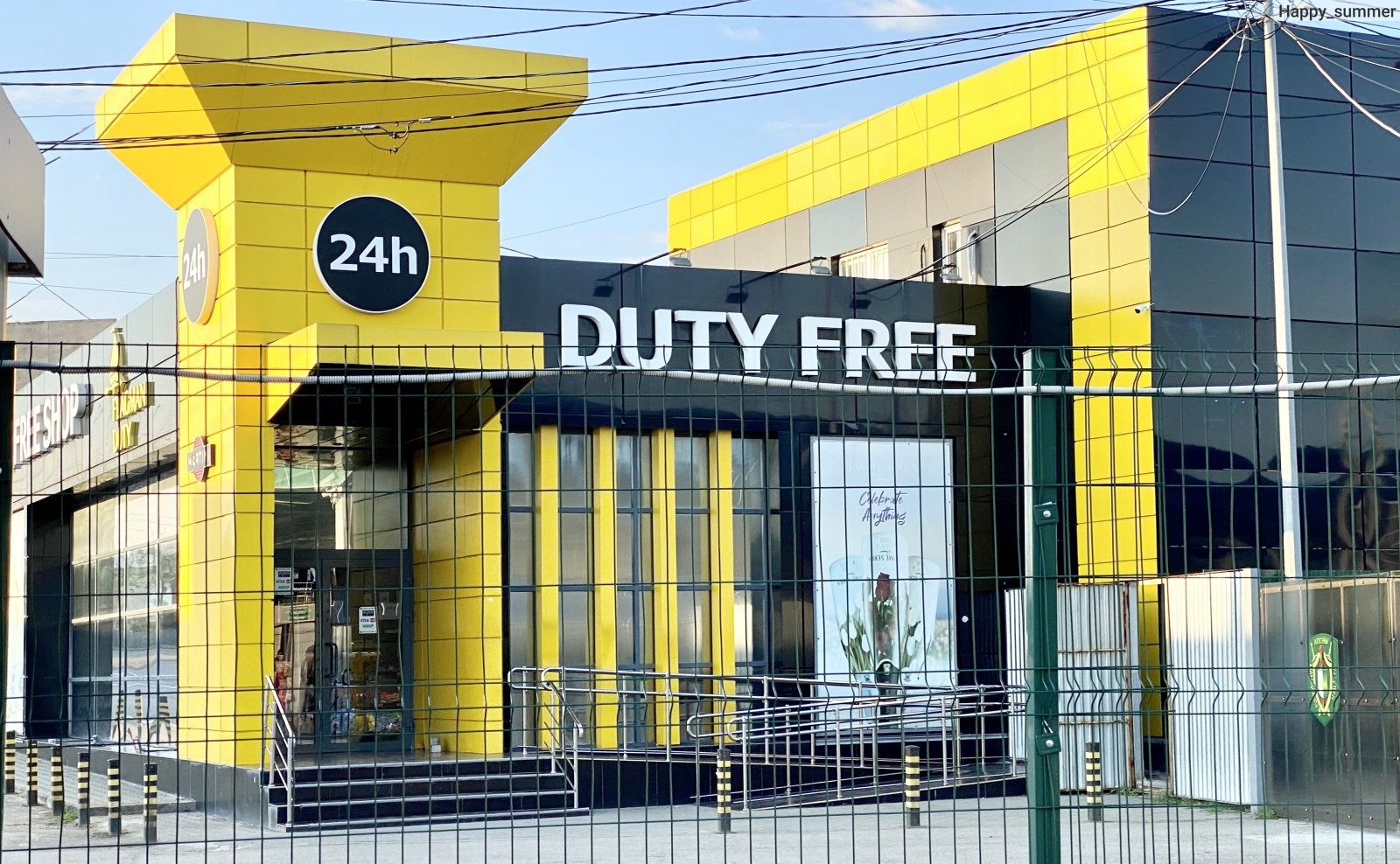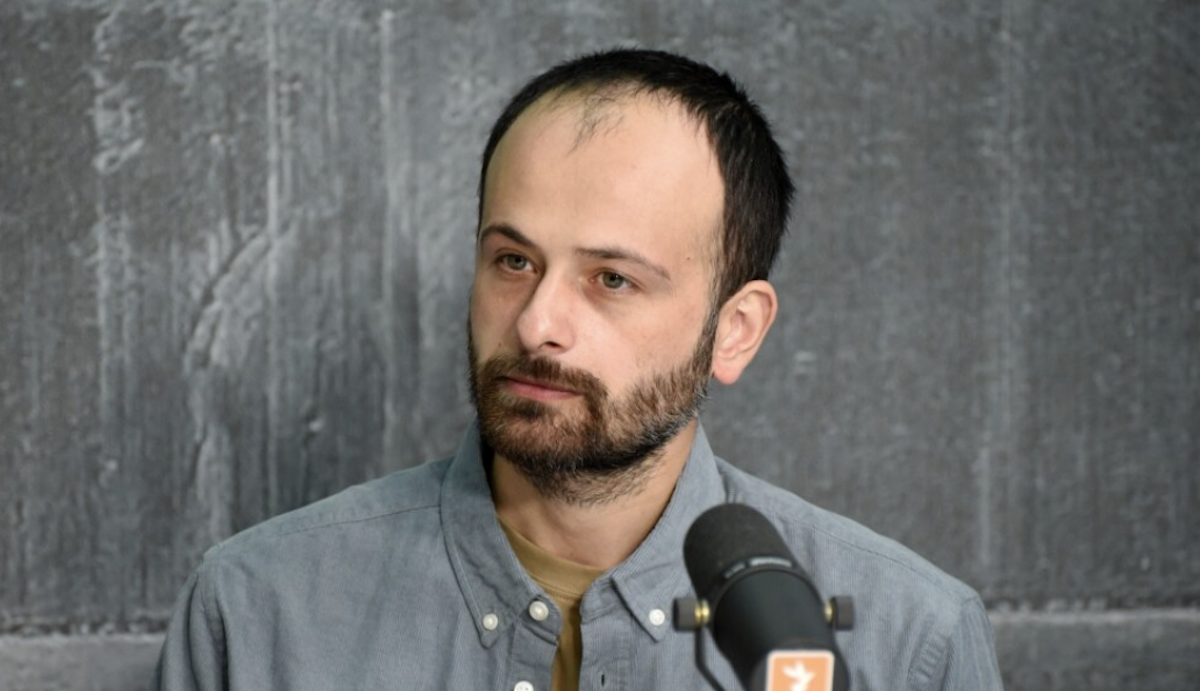"They beat me, didn't let me go to the toilet". Former Azerbaijani political prisoners tell what they went through
Azerbaijani political prisoners
Azerbaijani media often report on the harsh treatment faced by politicians, journalists, religious activists, and union members during detentions. They are not allowed access to lawyers and are prevented from informing their families about the detention.
By applying physical and psychological pressure, the police try to force them to confess to crimes they did not commit. Sometimes, without even bothering to prove these crimes, the police immediately transfer the case to court. The judge, in turn, without reviewing the case, decides on pre-trial detention.
Former political prisoners, as well as relatives and friends of currently detained journalists, told “Meydan TV” that violations of rights are not limited to this and even after arrest, in pre-trial detention, they are treated differently than other detainees.
“I was not allowed to attend to natural needs, they struck blows to my head and neck”
Araz Aliyev, a member of the civil movement NIDA and co-founder of the political platform ‘Third Republic,’ was sentenced to 25 days of administrative arrest in December 2023. Aliyev recalls facing physical pressure from the police during his detention.
They accused him of using profanity in public and not complying with their lawful demand, drawing up a protocol under articles 510 (petty hooliganism) and 535.1 (failure to comply with a lawful demand of a police officer) of the Administrative Offenses Code.
Araz Aliyev:
Araz Aliyev recounts: “Unfortunately, serious physical violence, insults, and demeaning treatment have become Azerbaijani realities today. I, too, have had to confront them.
Unidentified individuals in civilian clothing abducted me, hurling insults and resorting to blatant violence. I was beaten on the abdomen and legs. Later, similar and even more severe treatment continued during an illegal interrogation at the 24th police department.
I was denied access to attend to natural needs and subjected to blows to the head and neck. The interrogation lasted four to five hours, during which neither my lawyer nor family members were informed. Emotional and psychological pressure tactics were used against me throughout.”

Despite not committing any offenses, I was asked to sign a confession. Even though I refused, I was taken to court without informing my lawyer or family. In court, the state-appointed defender made no effort to defend me; instead, they portrayed me as guilty.
The court dismissed my personal pleas, and questions I posed to false witnesses went unanswered. The judge blatantly ignored the points I raised. As a result of false police testimonies, I received a 25-day arrest.”
“Been watching too many American movies”
Another member of the NIDA civil movement, Elgiz Gahraman, who in 2016 was sentenced to 5.5 years in prison on charges of drug trafficking, also recalls encountering similar lawlessness and inhumane treatment during his arrest. Despite being charged with drug trafficking, he was questioned about his political activities during interrogation.
Elgiz Gahraman:
“After the arrest, I was taken in the back seat of a car with my head held down, so I couldn’t see where we were going. Only upon arrival did I realize that I had been taken to the main department for combating organized crime of the Ministry of Internal Affairs.
During the week I was held there, none of my needs were met. Clean clothes, the opportunity to contact my family – I didn’t receive any of that. I asked them to at least let me talk to my relatives, or bring me clean clothes, or buy them for me with the 66 manats [about $39] I had at the time of the arrest.
I said I could file a written complaint about it. It was summer, and I spent a week in the same clothes. Moreover, as a form of psychological pressure, they didn’t allow me to shower in the basement of the department. I spent a week in the same clothes, sweaty and unshaven, they didn’t give me a toothbrush or hygiene products, even though I asked for them.”
The activist says, when he was at the department for combating organized crime, he was asked to sign a confession that the “discovered” 3.315 grams of heroin found on him were acquired for resale. And since he refused to do so, he was handcuffed to the operative’s driver for hours.
Elgiz Gahraman:
“When I wanted to inform my family about what had happened, they said I would do it only when they wanted me to. When I demanded a lawyer, they appointed a state defender for me, whom I refused. I said I wanted my own lawyer and wouldn’t sign anything without one.
To this, the head of the department, Kerim Alimardanov, who later became subject to U.S. sanctions for torturing religious and political activists in 2015 and 2016, replied: ‘You seem to have watched too many American movies. We’ll decide who your lawyer will be.’ And when I refused to sign a confession, I was beaten and tortured.
While I was there, I was beaten daily, handcuffed, and subjected to inhumane treatment. I was interrogated by an operative named Shahlar Jafarov. During the interrogations, I was handcuffed to his driver. I even had to go to the bathroom with this driver. And in this state, I spent from 10 in the morning until six in the evening in Shahlar Jafarov’s office.”
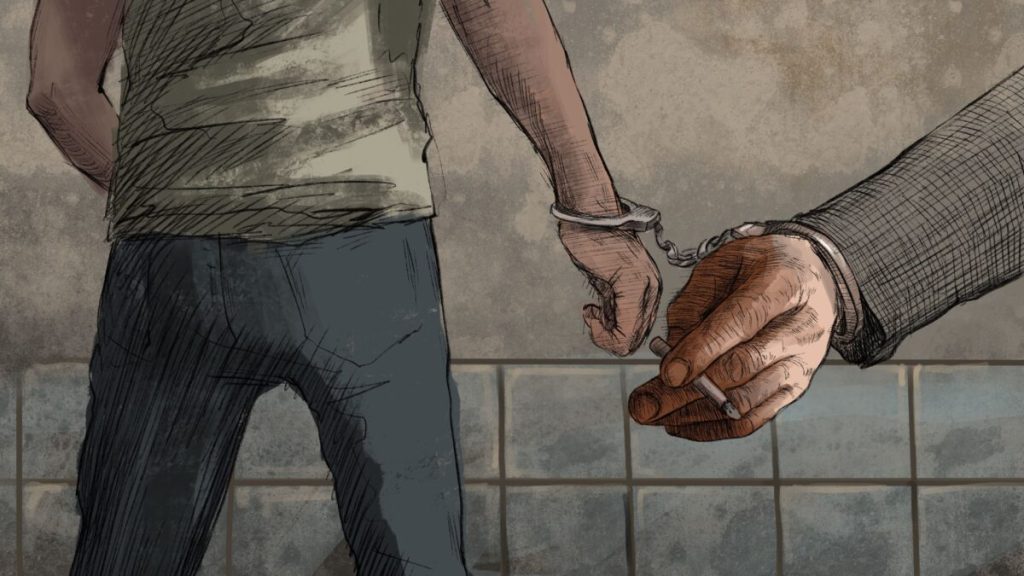
Elgiz Gahraman told that when he was brought to court for the determination of preventive measures, there were signs of torture on his body. He showed these signs to the judge, but they were ignored, as was his refusal of the state-appointed lawyer.
This lays the foundation for violations
One of the most common violations during the arrest of government critics is that neither family members nor lawyers are informed of where the person is being held or what they are accused of. Lawyer Zibeyda Sadygova says she often encounters this, especially when it comes to political activists. According to Sadygova, hiding the whereabouts of her clients violates their right to defense, and it is at this stage that the foundation is laid for subsequent violations.
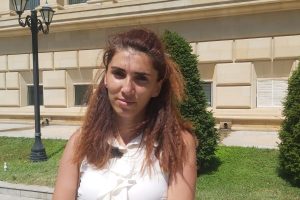
“Ususally when someone is arrested and we are certain of it, the family is searching for them, we call police, we call the ombudsman’s office, however, for a long time, we cannot obtain information about where this person is being held.
Unfortunately, we only manage to get this information one, two, or three days later. By that time, all investigative actions that determine their fate have already been carried out.
For example, they obtain confessions from them, force them to sign certain documents, and subsequently, we cannot prove in court that these confessions were obtained in violation of the right to defense, which creates significant difficulties for us.
Another problem is that during this time, a state-appointed defender is already assigned to the person, and all investigative actions are carried out with the participation of this ‘state’ lawyer. And when the defendant’s own lawyer is involved, all the main documents that determine their fate are already signed.
We are forced to file complaints about violations of the right to defense, the use of psychological and physical violence. This mainly happens in cases of politically motivated arrests.”
No motions in the Abzas Media case are granted
Notable are a series of violations committed during the arrest of employees of the online publication Abzas Media, known for its investigations and criticism. Six employees of the publication were arrested in November 2023 on charges of smuggling. Zibeyda Sadygova, who is the lawyer for the director of this publication, Ulvi Gasanli, states that there are no significant grounds to detain her client and other defendants in this case in custody for the duration of the investigation. According to Sadygova, “smuggling” is not considered a particularly dangerous offense and does not entail isolation from society.
Zibeyda Sadygova:
“In Ulvi’s office, money was found. Although Ulvi stated that the money did not belong to him, criminal cases were immediately initiated against him and other Abzas Media employees on charges of smuggling. This is where the violations begin because no evidence of the source of this money, whether it belongs to Ulvi, or whether it was smuggled into the country, was presented to the court.
When I met with Ulvi, he told me that force was used against him during the arrest, he was struck, and he had a black eye. After the initial measures and the discovery of money without any evidence or additional investigation, criminal cases were filed against Ulvi, and an application for his detention was submitted to the court.
The biggest problem in the case of Ulvi Gasanli and other Abzas Media employees is that the court, without considering any evidence that these individuals actually smuggled currency into the country, chose to detain them for an extended period. At this point, they are all in the Baku pre-trial detention center.
We have repeatedly complained and filed motions for their transfer to house arrest, but the court has not yet considered any of our motions. If we had a normal legal system, if the legislation worked, these journalists would not be behind bars now.
Even if criminal cases were brought against them, they still should not have been in custody. There are alternative preventive measures. But the court rejected not only our motions regarding preventive measures but all motions in general.“
After the arrest of Abzas Media employees, pro-government media started disseminating information allegedly obtained from the investigation. It was claimed that the arrested journalists were accused of conducting anti-Azerbaijani campaigns and publishing unsubstantiated materials in cooperation with U.S.-funded donor organizations.
The dissemination of such information is viewed by the lawyer as a violation of the presumption of innocence. Sadygova also emphasizes that her clients were required to sign non-disclosure agreements regarding the investigation, but information based on testimonies that neither Ulvi Gasanli nor other Abzas Media employees provided was circulated in the media. The lawyer considers this to be black PR and intends to take appropriate legal action.
Ban on visits and phone calls
Currently, the Abzas Media employees held in investigative isolation have been denied the opportunity to meet and communicate with their family members for an extended period. Elnara Gasimova’s spouse, Nijat Amiraslanov, informed Meidan TV that since her arrest, he has only spoken to her on the phone once.
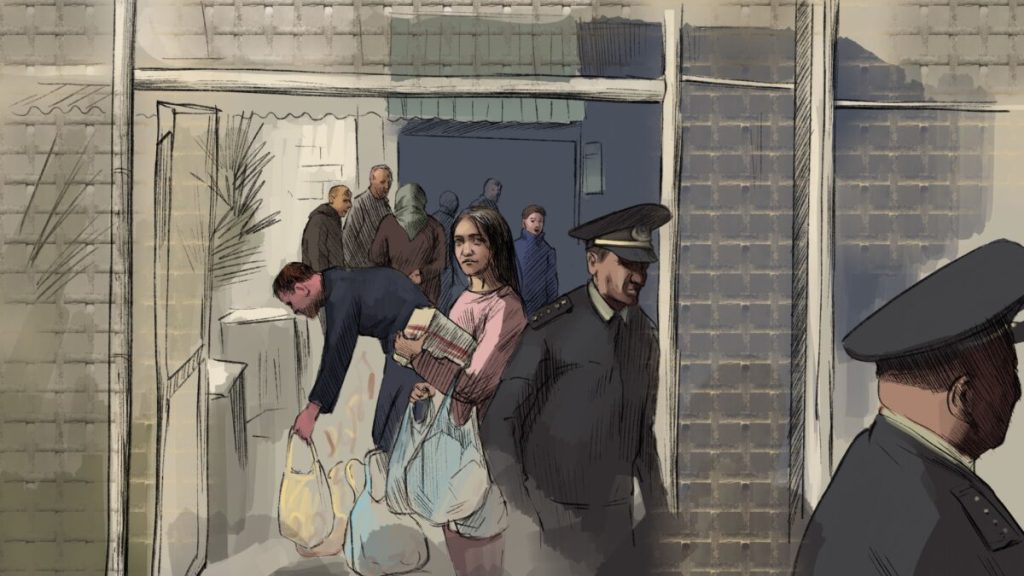
“We can only pass on messages. But we cannot meet or receive any information. In 20 days, only one phone call and nothing more.”
According to Zibeyda Sadygova, the ban on phone calls and visits is completely unjustified.
Zibeyda Sadygova:
“The investigator does not explain why Ulvi Gasanli and other journalists are not allowed to call or meet with their families once a week. Considering that Ulvi has a one-year-old daughter, she is in an important period, and both parents should be together. But Ulvi is deprived of this.
We have complained to the court many times about the illegality of this decision by the investigator, but the court rejects our complaints and does not provide any explanations for why it considers this justified.
We expect that, in the event of any complaint or question, the accused will contact their lawyers themselves; they have the right to call their lawyers. Unfortunately, Abzas Media employees are not allowed to do this. Regarding this, we have also appealed to the court, but again, without result.”
Arrest as the only preventive measure in politically motivated cases
Civil activist Ilhamiz Guliyev, who previously worked in government bodies, also faced inhuman treatment upon arrest. This is described by one of his close friends, Aygul Jafarova. According to her, she went to the police department where Ilhamiz was held, but even though he was there, the deputy head of the department denied it.
Aygul Jafarova:
“I saw three people in plainclothes dragging Ilhamiz and stuffing him into a Hyundai civilian car with a number ending in 333. They did not identify themselves, and I ran to the car, asking where they were taking him, but they didn’t answer me.
I called the ombudsman’s office, told them what happened, that some people took the person away just like that. But they did not accept my complaint, justifying it by saying, ‘If the people who took him away were in plainclothes, it’s not certain that they were policemen, and we only accept complaints related to state structures.
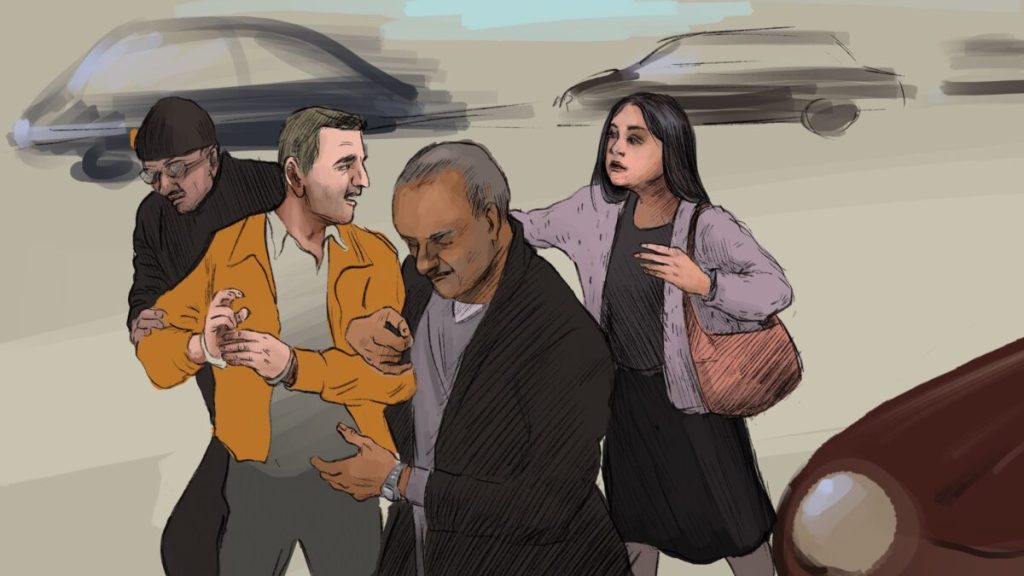
“In the car, these people beat Ilhamiz. I went to the nearest police station in the Yasamal district. In the yard of the station was the same car on which they took Ilhamiz away. They told me that he was not brought there.
Then his lawyer came. We remained outside the station, and finally the deputy head called us and the lawyer into his office. While we were in his office, friends waiting outside saw that Ilhamiz was taken out of the station and driven away. He managed to shout to them, ‘I am here.‘
At that time, the deputy head was distracting us with his lies. It turned out that Ilhamiz was taken to the Yasamal district police department. Lawyer Zibeyda Sadygova met with Ilhamiz there and later confirmed that he had signs of beatings on his face.“
As a former police officer, Ilhamiz Guliyev, in an interview with Abzas Media, talked about how the police plant unregistered drugs on detainees. He gave this interview anonymously, but Guliyev’s identity was soon revealed, and he was subsequently arrested. Relatives and close associates attribute his arrest specifically to that interview.
Zibeyda Sadygova says that people arrested for political reasons face discrimination from law enforcement and judicial authorities. According to her observations, in cases of individuals committing socially dangerous crimes, the court sometimes chooses not to detain them but to impose an alternative measure of restraint.
Zibeyda Sadygova:
“On January 9, 2024, a fire broke out at the Perinatal Center, killing four infants. But the accused individuals were not remanded in custody. Perhaps the prosecution demanded it, but the court chose house arrest.
Our legislation allows for this; alternative measures of restraint can be chosen. This is within the court’s competence. However, in cases of politically motivated arrests, there is blatant discrimination.
For example, Ulvi Gasanli is not guilty of anyone’s death and is not accused of more serious crimes. He is only charged with smuggling. Compared to others, this offense is not socially dangerous. However, Abzas Media employees are in custody.
Or, for example, people in pre-trial detention accused of murder or drug trafficking can calmly call and meet with their families. But those arrested for political reasons, like the journalists from Abzas Media, are prohibited from doing so.”
“Azerbaijan is not fulfilling its obligations.” Political prisoners in Azerbaijan
Rufat Safarov, a former prosecutor who now works as a human rights defender, says that in the past year, Azerbaijan has not been complying with the international conventions it has joined, and there have been violations of human rights and freedoms in the country.
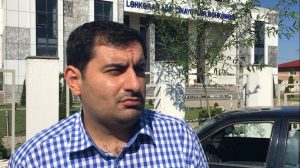
“People who criticize the government, public activists, investigative journalists – all of them are subjected to administrative or criminal liability on fabricated grounds due to their activities. In the context of freedom of speech, defamation and ostracism are applied.
Rights and freedoms, including the rights to inviolability, freedom of expression, the right to a fair trial, enshrined in the European Convention, are grossly violated. Apparently, although formally Azerbaijan has acceded to the Universal Declaration of Human Rights, the International Covenant on Civil and Political Rights, the European Convention on Human Rights and its protocols, de facto it does not fulfill its obligations.
According to Safarov’s observations, the accusatory acts drawn up at the initial stage of the investigation based on fabricated evidence are copied word for word into the indictment. And subsequent instances simply rewrite the same decision and leave it in force.
Rufat Safarov:
“At trials with a political background, judges behave not as arbitrators, but as one of the parties or prosecutors. Because the judiciary is an extension of the executive power and judges are not guaranteed independence.
Despite the fact that, according to the IV paragraph of the 8th article of the constitution, the president is the guarantor of the independence of the judiciary. Given this, people who cannot restore their violated rights in local instances turn to the European Court of Human Rights (ECHR).
In 2023, the ECHR made 40 decisions on claims filed from Azerbaijan. And from these decisions, it can be seen that most often the right to a fair trial was violated. In addition, the decisions of the ECHR reflected violations of the right to freedom and inviolability, respect for private and family life, the prohibition of torture, the right to property, life, effective means of legal protection of rights, as well as violations of freedom of assembly and association, freedom of expression.
Unfortunately, Azerbaijan leads in non-compliance with ECHR decisions. It is appropriate to recall Article 18 of the Convention – the limits of restrictions on rights related to rights. This convention norm is aimed at preventing the state from restricting the rights of its citizens for political reasons and abusing power.”
Rufat Safarov claims that law enforcement agencies, courts, the prosecutor’s office protect the political and repressive interests of the ruling party.
Appropriation of 27 million
Comparing other criminal cases and cases considered politically motivated, Safarov concludes that law enforcement agencies are guided by political orders.
Rufat Safarov:
“The law enforcement agencies conducting repressive policies operate with complete impunity. Note: in relation to activists, oppositionists, investigative journalists, at the initial stage of the investigation, the most severe measure of restraint is chosen – detention. It is precisely at the government’s directive that alternative measures of restraint are not applied to them.
Meanwhile, for example, former Minister Salim Muslimov, accused of embezzling 27 million, walks free. Or officials responsible for the fire at the Perinatal Center and the deaths of four infants are under home arrest, not in pre-trial detention. What does all this say? That official Baku nihilistically approaches rights, gives unequal and unfair assessments to similar cases, and that the legal system as a whole is limping on both legs.“
In the final report of the ECHR for 2023, it is reported that Azerbaijan is among the top ten countries in terms of lawsuits filed with this court. According to some experts, this is due to the fact that the political environment in the country is becoming increasingly stifling, and opponents of the authorities face judicial injustice.
On January 24, 2024, the Parliamentary Assembly of the Council of Europe (PACE) suspended the powers of the Azerbaijani delegation for a year. Among the reasons for this decision were mentioned that Azerbaijan did not invite PACE to observe the presidential elections on February 7, as well as the practice of politically motivated arrests in the country.
The Assembly states that Azerbaijan does not fulfill its basic obligations undertaken upon joining the Council of Europe. In turn, the Azerbaijani delegation also announced the suspension of cooperation with PACE indefinitely.
From time to time, various international organizations make statements that in Azerbaijan, rights and freedoms, including freedom of speech, are grossly violated. The Azerbaijani government, however, claims that no one in the country is persecuted for political activities, opinions, and statements, and individual persons are rightfully convicted of specific crimes.
With the support of the Media Network










